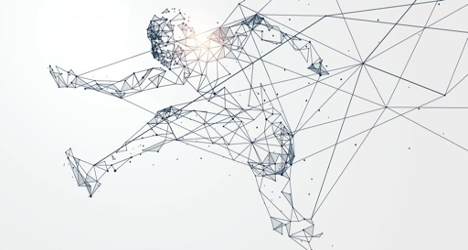The Role of Big Data in Enhancing Sports Betting Experiences
Mar 22, 2023 13:52

It’s been said that the house always wins (and it’s big news when that mantra doesn’t ring true, with articles aplomb whenever the books lose big after a stunning upset), but how is Las Vegas able to predict the outcome of games, seasons and player performances with such consistent success? I
It’s not as simple as picking the best team on a given day, as the betting industry as a whole does an excellent job of sniffing out upsets too. Vegas has to be able to analyze player and team trends across the length of a season (and even as much as a career) to determine their expected outcomes, crunching thousands of numbers to predict and profit off the results. While the changes the sportsbooks notice can be invisible to the naked eye take a look at FanDuel Kansas, which listed the Houston Cougars as the favorites to win it all for much of the NCAA Men’s Basketball season, but have since swapped their favorites to the Alabama Crimson Tide after the opening weekend of March Madness—make no mistake: the bookies know what they are doing.
In the digital age, it’s easier than ever for sportsbooks to set their lines in a way that maximizes returns: with more data at one’s fingertips than ever thanks to sabermetrics and other forms of in-depth statistical analysis, the house has a look at what’s going to happen in games like never before. Here are a few ways that big data is enhancing the sports betting industry:
Improved analysis and prediction
By analyzing large datasets of historical games and player data, sports betting companies can gain a better understanding of how teams and players play, identify trends, and make more accurate predictions about the outcome of games. This impacts everything, from quantifying how a player’s injury will affect the rest of the team to quantifying the things that fans can notice but not quite sort out the reason to, like why certain players can’t get it done in the clutch or struggle in postseason play.
Personalized recommendations
The impact of big data doesn’t just pertain to predicting how a player or team will perform during a game: it also plays a role in customer satisfaction. Big data can be used to personalize betting recommendations for individual users based on their betting history and preferences. No one likes to be bogged down with advertisements, so the gambling industry is able to make sure the ads and promos they do send to a bettor are ones that they’ll find useful, rather than just another email or notification that’s mindlessly swiped away.
Real-time insights
Real-time data feeds and analytics allow sports betting companies to adjust their odds and betting lines in response to changing conditions, such as weather, player injuries, or changes in the game.
As live betting on games already in progress continues to take over the gambling industry, sportsbooks have to be able to crunch their numbers in the middle of games too as the lines for spreads and player props can change after almost every play. It’s one thing to be able to predict an outcome when you’ve got a day to prepare and weigh all the numbers: another thing entirely to do in the midst of a game when the situation can change with every passing second.
Fraud detection
Big data can be used to detect unusual patterns or activity that may indicate fraud or illegal betting activities. This is, perhaps, one of the most important things that the betting industry is able to do. Trust is a critical thing to have when any amount of money is involved, so sportsbooks have to be able to keep their platforms safe and secure. Raising immediate red flags when any suspicious activity occurs is just one example of that.







































































